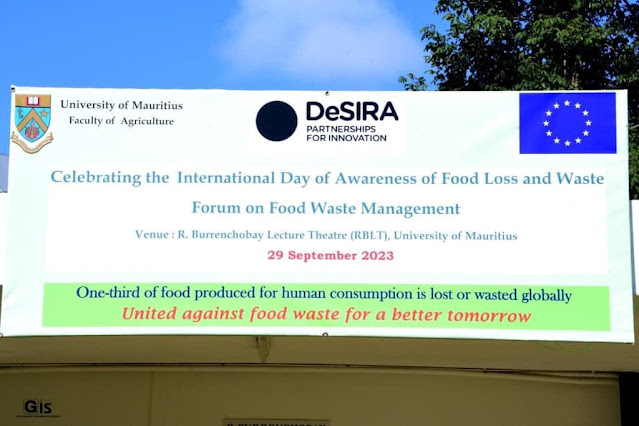Addressing the Global Food Waste Crisis: A Message from the Dean
In a world brimming with advancements, there's an irony that's hard to ignore: while we produce more food than ever before, a significant portion of it is lost or wasted. This paradox was the crux of the address by the Dean of the Faculty of Agriculture during a forum to mark the International Day of Awareness on Food Loss and Waste Reduction. Here's an in-depth look at the Dean's message:
Global Perspectives on a Local Platform
The statistics are alarming: globally, one-third of all food intended for human consumption never reaches our plates. This wastage, amounting to 1.3 billion tons annually, carries an economic loss of a staggering 1 trillion US dollars. These figures, presented by the Dean, are not just numbers on a page; they depict a crisis affecting the environment, the economy, and the very fabric of our global society.
Hunger Paradox:Even with such extensive food production, the spectre of hunger looms large. Close to 828 million individuals worldwide succumb to hunger. Childhood malnutrition is rife, with 14 million children affected. Moreover, 45% of child deaths globally can be attributed to hunger and its associated complications. In a telling statistic from 2020, a vast majority (70%) of the world's hungry population resided in just three nations: Ethiopia, Kenya, and Somalia.
Literary Insights and Innovative Solutions
Quoting Trisha Stewart's "Waste: Uncovering the Global Food Scandal," the Dean underscored that food waste is not just a gross injustice against those facing hunger, but it's also an assault on our environment and our collective future. However, amidst this bleak picture, there are light of hope. Initiatives like Toast Ale, which brews beer from surplus bread, exemplify the innovative solutions that are sprouting globally.
University's Pillar of Strength
The Faculty of Agriculture, with its rich history dating back to 1914, has consistently championed the cause of sustainable agriculture and food practices. This legacy, as emphasized by the Dean, is a testament to the institution's commitment to aligning with national and global agendas. The mission is clear: to produce research and initiatives that directly combat the challenges of food wastage.
Education and Empowerment
The fight against food wastage isn't restricted to laboratories and research papers. It's about instilling values and knowledge in the students. By infusing the curriculum with concepts centred around food waste and best practices for food handling and storage, the aim is to create a generation ready to take on this global challenge.
Collaboration and Commitment
The Dean highlighted the importance of the DeSIRA Project, funded by the European Union. This collaboration has been instrumental in strengthening the research capacities of the institution, particularly in food science and technology.
 |
| Unveiling of the Commemorative Plaque for the Food Lab by the EU Ambassador. |
 |
| Dr Deena Baboolall Ramful guided our guest of honour, the Acting President of the Republic of Mauritius in the newly refurnished food laboratory. |
Not to be missed is the upcoming launch of an ebook dedicated to utilizing food leftovers and imperfect produce. This endeavor, was backed by numerous dedicated chefs and individuals.
Conclusion: A Call to Arms
The Dean's message was crystal clear: the battle against food wastage is ongoing, and it's one we cannot afford to lose. Drawing inspiration from Jonathan's words, the Dean emphasized that food is more than just sustenance; it's a reflection of our history, choices, and values.
The clarion call is out: let's cherish every morsel, innovate, collaborate, and pave the way for a future where food is valued, and wastage is a relic of the past.




No comments:
Post a Comment